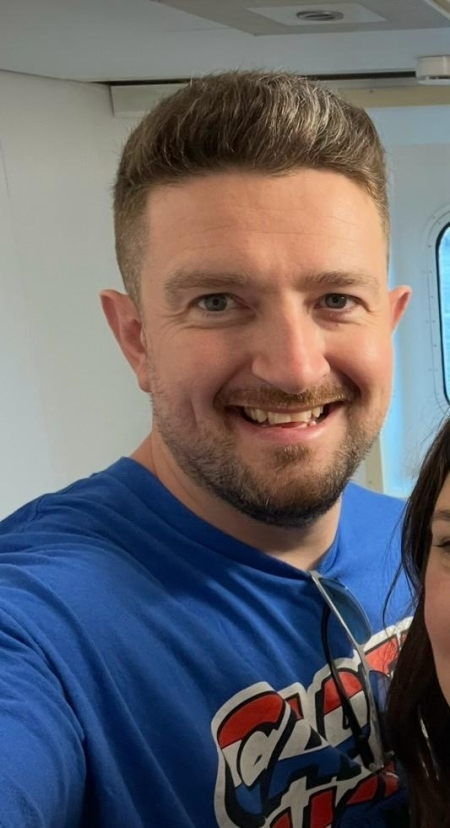Publish date: 14 May 2025
National Operating Department Practitioner (ODP) Day 2025 - Marc Hallet, senior ODP

My role is in anaesthetics as a senior ODP. I’m not a nurse or an anaesthetist. However, anaesthetists can’t administer a general or regional anaesthetic without a suitably trained professional such as myself. One of the primary responsibilities of my role is to ensure the safety of our patients throughout their anaesthetic. This includes being an advocate for my patients, meaning I need to develop a professional relationship with them to ensure that I understand what they may choose if they were not under the influence of anaesthetic medications.
How did you get into your role?
Like many others who become ODP’s, I had several jobs prior to training. I had a career as a teacher and programme leader, working primarily with 16-19 year-old students in further education. Many of these students were looking to become healthcare professionals themselves. Ironically, this helped direct my career choice from education to healthcare. After arranging career talks and university visits for my students, I invited the Operating Department Practice programme leader (Lloyd Howell) to come to my college to complete a guest talk for my 100+ students. The whole room was in awe of the responsibility that is required of an ODP, however, none of them as much as me. I applied for the course the following year.
What is the most rewarding part of your role?
One of the parts I enjoy within my role is building a rapport with my patients, often within a short period of time prior to general anaesthetic or sedation with regional anaesthesia. This can also be challenging when we have a long list of important safety questions to ask. However, the reward of having a patient feeling comfortable, in what can be a terrifying situation, is the biggest compliment an anaesthetic ODP can have. I chose to train for this role because I wanted to focus all my efforts on one patient at a time, to provide the best service possible and this role allows me to do that.
Why do you think it’s important to celebrate ODP day?
I think it’s important to acknowledge the importance of what we do. We are a small profession in comparison to many of the other healthcare roles and our skills are very specialised. Due to the private and confidential nature of surgery, we do not have much contact with the public outside of operating theatres and therefore most of the public are not aware we exist. Promotion of the role isn’t purely about celebrating our successes, but it promotes operating department practice to prospective ODP’s. This ensures we have a diverse range of people to continue the highest standards of care for some of the hospitals most vulnerable patients.
